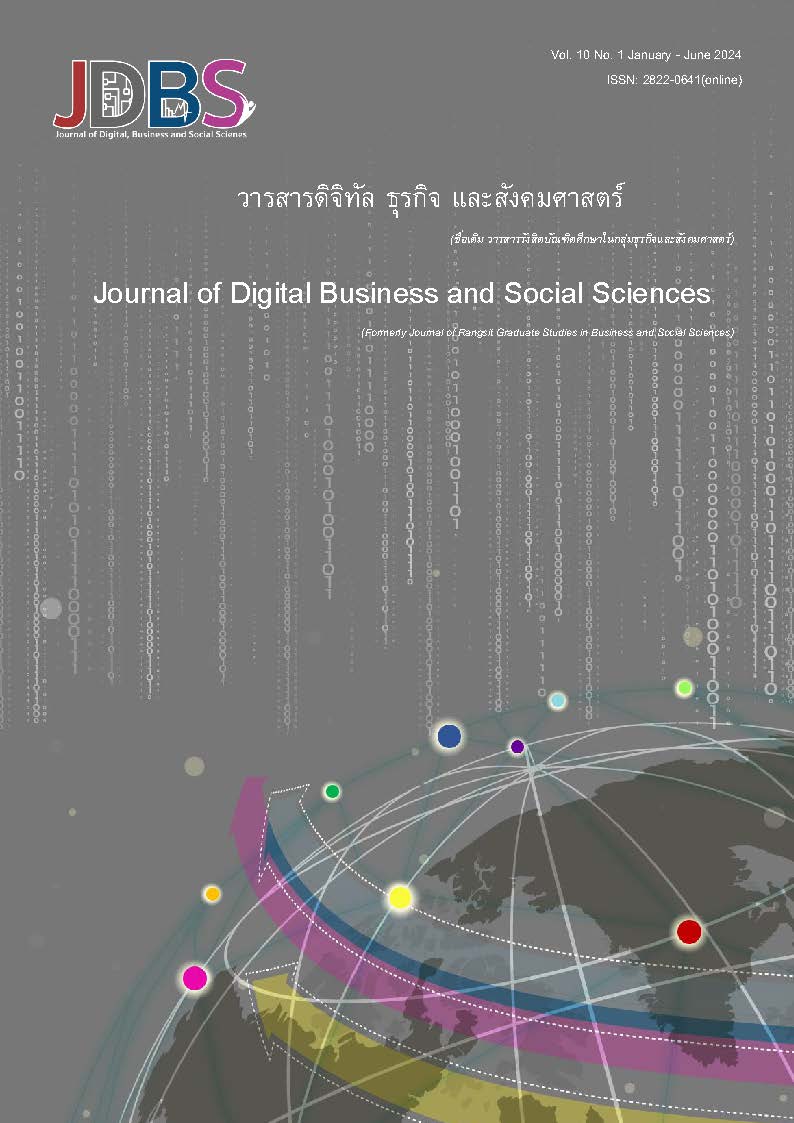Local Community Power: Dynamics of Community Forest Management through the Utilization of Community Cultural Capital for Sustainable Strengthening of Grassroots
Abstract
The concept of local community forests serves as a guideline for natural resources and environmental conservation within the community, emphasizing the participation of civil society. Driven by the people, it has been widely developed in developing countries. Thailand has always prioritized resources and environmental conservation and has a forest resource base under this concept. Local communities play a crucial role in driving the inheritance of good values. They serve as the identity of the community's way of life with the forest. By utilizing the cultural capital existing in the community, they apply to create local community power. The concept of community forest conservation is created by using the community forest as a mobilization to nourish life and developed to build the foundation of the local grassroots economy to become an eco-tourism destination. Using limited resources creates value and a community economic base, promoting a balanced community way of life. It can be said that the local communities, as the owners of the resources, participate in and take responsibility for the forest resources management with the support and mobilization from the government to benefit various sectors of society. In Thailand, the concept of local community empowerment and community forest management has become increasingly important. The study objectives are to examine the collaboration approaches between the government and civil society regarding the dynamics of community forest management by using community cultural capital to manage community forests, strengthen the grassroots economy sustainably, and propose guidelines for efficiency cooperation and promotion. The structure of the development mechanism for the creative conservation of forest resources leads to the development and promotion of the governmental policy and the study of government laws related to community forest rights and strategies for community forest management for natural resources conservation in the northern region. The research design of this study is qualitative research that collected the data through in-depth interviews, focus group discussions, and participatory observation to prioritize the problems. The study found that the driving force of the integration of local people in community forest management encouraged governmental activities. It can be applied to policy development via community forest management models by utilizing the power of community unity, driving various community forest policies of the government with local people. This results in a creative force for community forest conservation, creating a community economic foundation for maximum sustainable benefit.
Keywords: local community power, community cultural capital, dynamics of community forest management, grassroots economy
References
กรมป่าไม้. (2560). กระทรวงทรัพยากรธรรมชาติและสิ่งแวดล้อม. สืบค้นจาก www.forest.go.th
กรมป่าไม้. (2564). สถิติกรมป่าไม้. สืบค้นจาก http://forestinfo.forest.go.th
ชาติชาย ณ เชียงใหม่. (2562). ระบบการจัดการที่เชื่อมโยงเครือข่ายในแนวราบและเป็นองค์รวม. ม.ป.ท.
ประทีป วีรพัฒนนิรันดร์. (2564). ข้อมูลข่าวสารรูปแบบการพัฒนาเศรษฐกิจชุมชนสู่สังคมในวงกว้าง ตามแนวคิดเศรษฐกิจแบบพอเพียง. ม.ป.ท.
วิกิพีเดีย. (2562). กรมวิชาการการเกษตร. สืบค้น 25 มีนาคม 2562, จาก https://th.wikipedia.org/wiki/กรมวิชาการเกษตร
สำนักงานสภาพัฒนาการเศรษฐกิจและสังคมแห่งชาติ. (2560). แผนพัฒนาเศรษฐกิจและสังคมแห่งชาติ ฉบับที่ 12 (พ.ศ. 2560-2564). สืบค้นจาก https://www.nesdc.go.th/ewt_news.php?nid=7240
สมพันธ์ เตชะอธิก และคณะ. (2540). ผู้นำท้องถิ่นกับความความเข้มแข็งของชุมชนชนบท. ม.ป.ท.
เอนก เหล่าธรรมทัศน์, และวลัยพร รัตนเศษฐ. (2557). รัฐประศาสนศาสตร์พลเมือง. กรุงเทพฯ: สำนักพิมพ์ มหาวิทยาลัยธุรกิจบัณฑิตย์.
เอนก เหล่าธรรมทัศน์. (2557). แปรถิ่น เปลี่ยนฐาน : สร้างการปกครองท้องถิ่นให้เป็นรากฐานของประชาธิปไตย (พิมพ์ครั้งที่ 2). กรุงเทพฯ: สำนักพิมพ์มหาวิทยาลัยธรรมศาสตร์.


